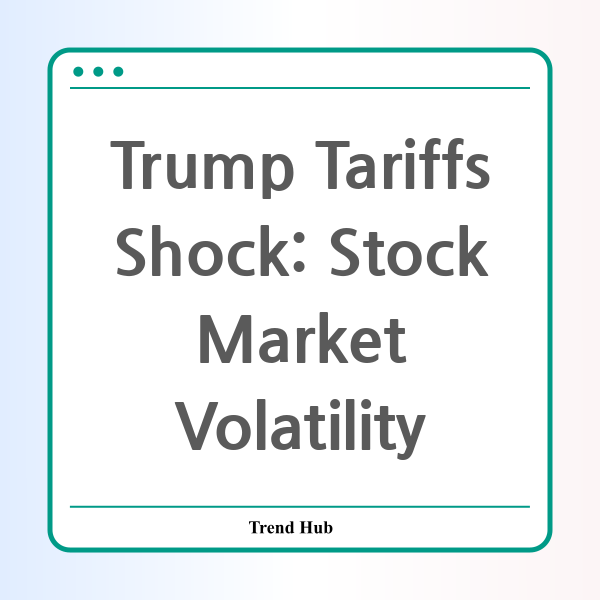* This website participates in the Amazon Affiliate Program and earns from qualifying purchases.

As the dust settles on President Trump's latest round of tariffs, global markets are experiencing unprecedented turmoil. Investors are left grappling with the implications of these sudden trade measures, which have caused stocks, gold, and bond yields to tumble. What does this mean for your investment strategy?
On April 2, President Trump announced a sweeping tariff plan affecting over 180 countries, sparking immediate concerns about a potential trade war that could disrupt global economic growth. A 10% tariff on all imports, coupled with a staggering 26% tariff on imports from India, has sent shockwaves through the financial community. The President declared this move marks the "rebirth of American industry, ushering in a golden age for the U.S." But at what cost?
The financial market was quick to react. The S&P 500 faced its largest weekly drop since the market crash triggered by COVID-19 in March 2020. The Nasdaq Composite fell over 20% from its December record high just as investors scrambled to reassess their portfolios. The Dow Jones Industrial Average also faced a decline exceeding 10% in that same timeframe, effectively wiping out over $5 trillion in market value.
Gold, traditionally seen as a safe haven, also faced a downturn, with June contracts plunging over 2%. Meanwhile, the yield on the benchmark U.S. 10-year Treasury note fell to a six-month low, indicating increased investor caution.
So, what should investors do amid this "Trump tariff shock"? Experts suggest adopting a cautious approach. First and foremost, investors are advised to focus on domestic consumption-driven sectors. As the situation evolves, selectively investing in pharmaceuticals may also yield positive results, given their resilience in times of market volatility.
Interestingly, while the global markets were reeling, Indian stocks demonstrated relative resilience. The Nifty 50 index experienced only a 1.8% decline since the tariff announcements, suggesting that the Indian economy may not be severely impacted due to its relatively small trade surplus with the U.S. In fiscal year 2024, India recorded a trade surplus of $36.8 billion with the U.S., making many analysts cautious yet optimistic about India's market stability.
Moreover, the Indian government is not taking this tariff battle lightly. There are expectations that ongoing bilateral negotiations with the United States could lead to a reconsideration of these tariffs. As a result, many believe that any constructive outcomes from these discussions could act as a market stabilizer.
Investors need to stay vigilant and consider a strategic approach to stock selection. As Ajit Mishra, a senior analyst, points out, focusing on stock selection and employing hedged strategies may prove beneficial until the market stabilizes and clarity emerges from the ongoing trade negotiations. A time-wise correction in the Nifty index is anticipated, urging investors to remain selective and cautious.
In summary, Trump's tariff announcement has indeed created significant volatility across global markets. While caution is essential, maintaining a focus on domestic-driven sectors and being selective in international investments could help mitigate risks during this turbulent period. As always, it's crucial to keep abreast of market conditions and consult with financial experts before making substantial investment decisions.
* This website participates in the Amazon Affiliate Program and earns from qualifying purchases.